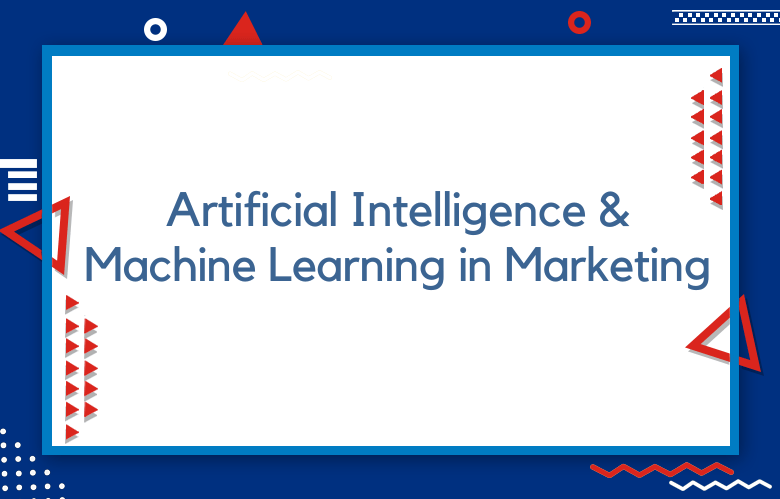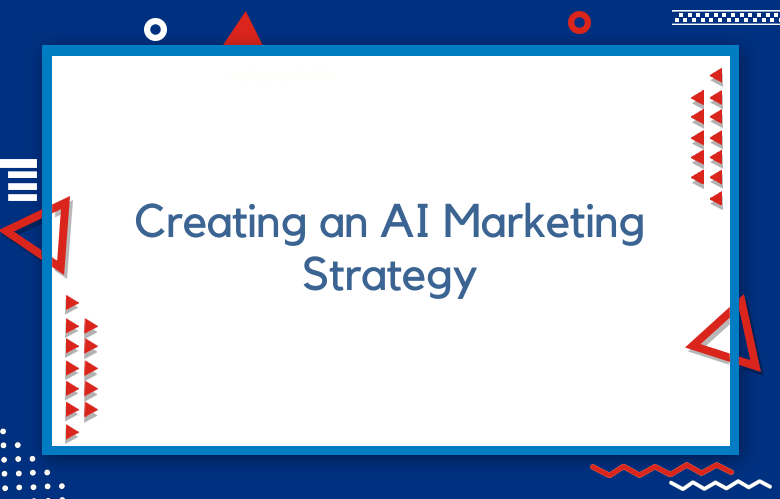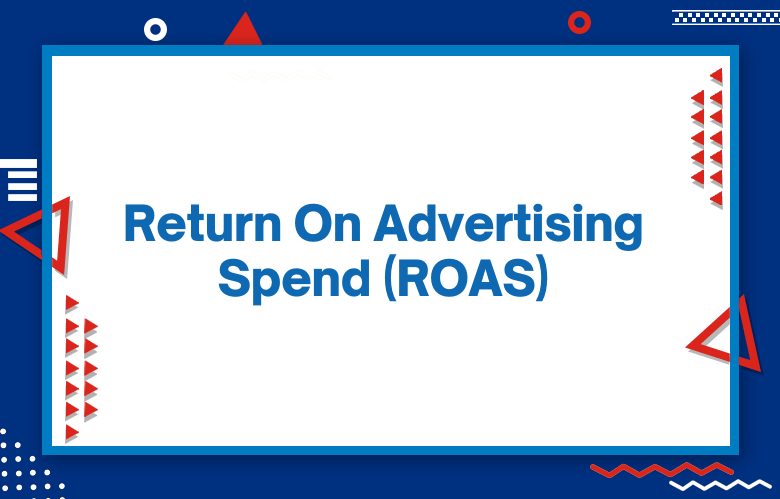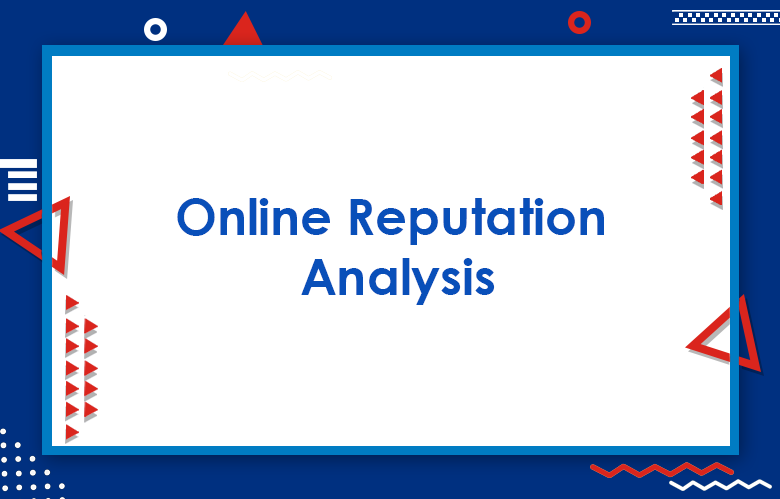Top Artificial Intelligence And Machine Learning Applications In Marketing

In recent years, the business world has rapidly increased its use of artificial intelligence(AI) and machine learning (ML). These sophisticated technologies are used in various ways, from chatbots and virtual assistants to predictive analytics and demand forecasting.
AI and ML are used in marketing to personalize the customer experience, target ads more effectively, and measure marketing ROI. Here are some of the top AI/ML applications in marketing. Read on to learn more!
What is Artificial Intelligence?
AI stands for artificial intelligence. Simply put, AI uses computers to perform tasks that would typically require human intelligence to get the job done. This includes recognizing patterns, making decisions, and improving over time.
There are different types of AI, but the most common are machine learning, natural language processing, and computer vision.
Machine learning is a type of AI that makes predictions or recommendations based on data. It’s similar to statistics, but instead of being limited to predefined rules, machine learning can change its algorithms as it learns more about the data it’s working with.
Natural language processing (NLP) is a type of AI that deals with understanding human language. It can use NLP for things like sentiment analysis (i.e., understanding whether a text is positive or negative) and topic modeling (i.e., understanding what a part of the text is about).
Computer vision is a type of AI that deals with understanding images. This includes tasks like image recognition (i.e., identifying an object in a photo) and object detection (i.e., finding all instances of an object in an image).
Applications of AI in marketing
We’ve answered the question, “What is AI?” Let’s examine how AI is used in marketing today.
One way AI is being used in marketing is through predictive analytics. This technique uses previous data to predict future outcomes. For example, it can predict customer churn or identify at-risk customers.
Another way AI is being used in marketing is through content creation. Several companies now offer software that can help you create content using AI. For example, there’s Quill, which describes itself as “the world’s first storytelling robot.” Quill takes your input (e.g., a topic you want to write about) and then creates a complete piece of content based on that input.
Personalized customer experiences
One of the most potent ways AI is used in marketing is to create personalized customer experiences. Thanks to AI-powered recommendations, it’s now possible to show each customer the products and services that are most relevant to them. This not only increases customer satisfaction but can also lead to increased sales and conversions.
Targeted advertising
AI-powered advertising platforms like Google Ads and Facebook Ads allow marketers to target ads more effectively than ever. It can target AI-powered ads specifically to each user using demographic information, location, search history, and purchase history. It results in higher click-through rates and more conversions.
Targeted advertising is another common application of AI/ML in marketing. Using AI/ML, companies can show ads to only those consumers who are likely to be interested in them, which leads to higher conversion rates and lower costs. For example, Facebook uses AI/ML to show ads to users based on their interests and demographics.
Measuring marketing ROI
Another great way AI is used in marketing is to measure marketing ROI. AI-powered platforms like Google Analytics and Adobe Analytics offer marketers detailed insights into their campaigns’ performance.
This includes which ads generate the most clicks, which keywords drive traffic to your website, and which channels result in the most sales. By understanding which marketing activities generate the most return on investment, you can better decide where to allocate your resources.
Customer segmentation
Customer segmentation is one of the most popular applications of AI/ML in marketing. It divides customers into groups based on shared characteristics, which can then be used to target marketing campaigns specifically for those groups.
For example, a company might segment its customers based on age, location, gender, income level, or past purchase history.
Customer segmentation is another AI/ML application used for marketing purposes. It involves dividing customers into groups based on shared characteristics to target them more effectively.
Predictions about customer behavior
Another popular application of AI/ML in marketing is predictions about customer behavior. Companies can use AI/ML to predict what products a customer is likely to buy, when they are expected to buy them, and how much a customer has the potential to spend.
It can then use this information to create targeted marketing campaigns to convert prospects into customers.
Predictive analytics
Predictive analytics is a type of AI used to predict future events or trends. This can be extremely helpful for marketers who want to know what their customers will do next to target them with the right message at the right time.
Lead scoring
Lead scoring is an AI/ML application that allows marketers to prioritize and score leads based on their likelihood of converting into customers. This can be a valuable tool for sales teams trying to close more deals and generate more revenue.
Social media listening
Social media listening is an AI/ML application that allows marketers to track and analyze social media conversations in real-time to identify opportunities or issues and take action accordingly.
Chatbots
Chatbots are computer programs that simulate human conversation. They can be used for customer support or lead generation purposes and are becoming increasingly popular for online interactions.
Chatbots are computer programs that mimic human conversation. They are commonly used to answer basic questions or provide customer support. Chatbots can be employed on websites, social media platforms, or messaging apps.
Thanks to advances in natural language processing (NLP), chatbots are improving their ability to simulate human conversation. For example, Facebook’s Messenger app features chatbots that can understand and respond to requests for business information, such as operating hours or location.
The goal of chatbots is to provide users with a quick and easy way to get the information they need without having to talk to a natural person.
Recommendation engines
Recommendation engines are AI that analyzes past behavior to recommend what a user might want or need in the future. ECommerce companies commonly use them to recommend products to customers based on their previous purchases.
Still, It can also be used for other purposes, such as content recommendations on websites or social media platforms.
Advertising optimization
Advertising optimization is an AI/ML application that helps marketers automatically test and optimize their digital advertising campaigns for maximum performance. This can save time and effort while assisting marketers in achieving better campaign results.
Paid search advertising
One of the most common applications of AI in marketing is paid search advertising. When a user enters a query, paid search ads appear at the top of the search engine results page (SERP). Paid search ads are usually labeled to distinguish them from organic results, which are not paid for.
Managing paid search ads can be time-consuming and tedious, but AI can help. For example, Google’s AI-powered platform, Smart Bidding, uses machine learning to optimize bids based on real-time data signals such as conversion rate, competition, click-through rate (CTR), and more.
As a result, marketers can save time and money while still achieving their desired results.
Content marketing
AI can also be used in content marketing. It can help generate ideas for new content, determine which topics resonate with audiences, and track engagement metrics.
For example, BuzzSumo is an AI-powered platform that analyzes social media data to identify trends and insights. This information can then create more targeted and effective content marketing campaigns.
Conclusion
These are just a few ways AI and machine learning are used in marketing today. As these technologies continue to develop, we can expect to see even more sophisticated applications emerge in the years to come. Keeping up with the latest AI and ML-powered marketing trends is essential to stay ahead of the curve!
AI transforms marketing by helping marketers automate repetitive tasks, personalize messages, and boost ROI. Paid search advertising, chatbots, and content marketing are areas where AI dramatically impacts. By harnessing the power of AI, marketers can save time and money while still achieving their desired results.
While we’ve only scratched the surface of artificial intelligence and machine learning applications in marketing, these powerful tools can help you reach your target customers.
Contact us for a free consultation to learn more about how AI and ML work for your business. Our team of experts will be happy to discuss how these cutting-edge technologies can help take your marketing strategy to the next level.
Call: +91 9848321284
Email: [email protected]



